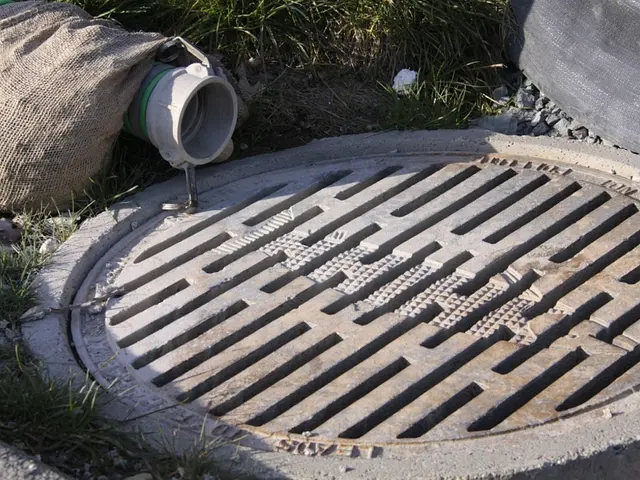Oil costs plummet after OPEC+ increases production output.
Written in a friendly, direct style
Oil prices dipped drastically on Monday after OPEC+ nations announced a hefty production increase, disregarding concerns over oversupply and waning demand due to escalating trade wars.
Following the weekend's announcement, Saudi Arabia, Russia, and other cartel members will pump an additional 411,000 barrels a day from May, following a similar increase in April that already sent prices tumbling.
The fall in crude prices has been intensified by apprehensions over global economic instability caused by US President Donald Trump's trade feuds.
AFP photo
Deutsche Bank AG pointed out in a report that this latest move represents a significant reversal from the continuous production cuts dating back to 2022.
By Monday morning, oil prices had plummeted nearly 4 percent but recovered some losses later. Brent, the international benchmark, stood at around $60 per barrel at approximately 7:15am GMT.
Major analysts speculated that Trump might be applying pressure to reduce prices or expect a decline in Iranian oil exports due to tighter sanctions, as potential explanations for the sudden decision.
However, Ipek Ozkardeskaya, senior analyst at Swissquote Bank Ltd, stated that the underlying reasons for the move remain ambiguous. "The recent developments in the oil market weren't surprising, but the rationale behind the decision remains unclear," she said.
According to Ozkardeskaya, the official justification points toward robust global oil markets and healthy inventories, while economic downturns fueled by Trump's trade war and concerns about oversupply suggest different motives.
Rumors circulated that the Saudis were punishing non-compliant countries, but Ozkardeskaya also mentioned controversial theories like Trump wanting to weaken Russian finances through lower oil prices, hastening the end of the Ukraine conflict, or Saudi Arabia planning to eliminate US shale businesses and capture a larger market share.
In conclusion, the main validated reasons for this unexpected OPEC+ production hike revolve around alliance compliance, strategic pricing, and market share management strategies, coupled with responding to broader economic conditions. The link between reduced oil prices and massive geopolitical changes, such as the Ukraine war, remains a speculative supposition without direct supporting evidence.
The unexpected increase in oil production by OPEC+ nations, including Saudi Arabia and Russia, in the oil-and-gas industry, has stirred controversy, with some analysts speculating that it could be a strategic move to influence finance, particularly US shale businesses and Russian finances, amid mixed signals in the energy sector. The decision to boost production, despite concerns over oversupply and waning demand, could potentially impact global economic conditions and the prices of crude oil, as the production hike contradicts the continuous production cuts dating back to 2022, according to Deutsche Bank AG.








